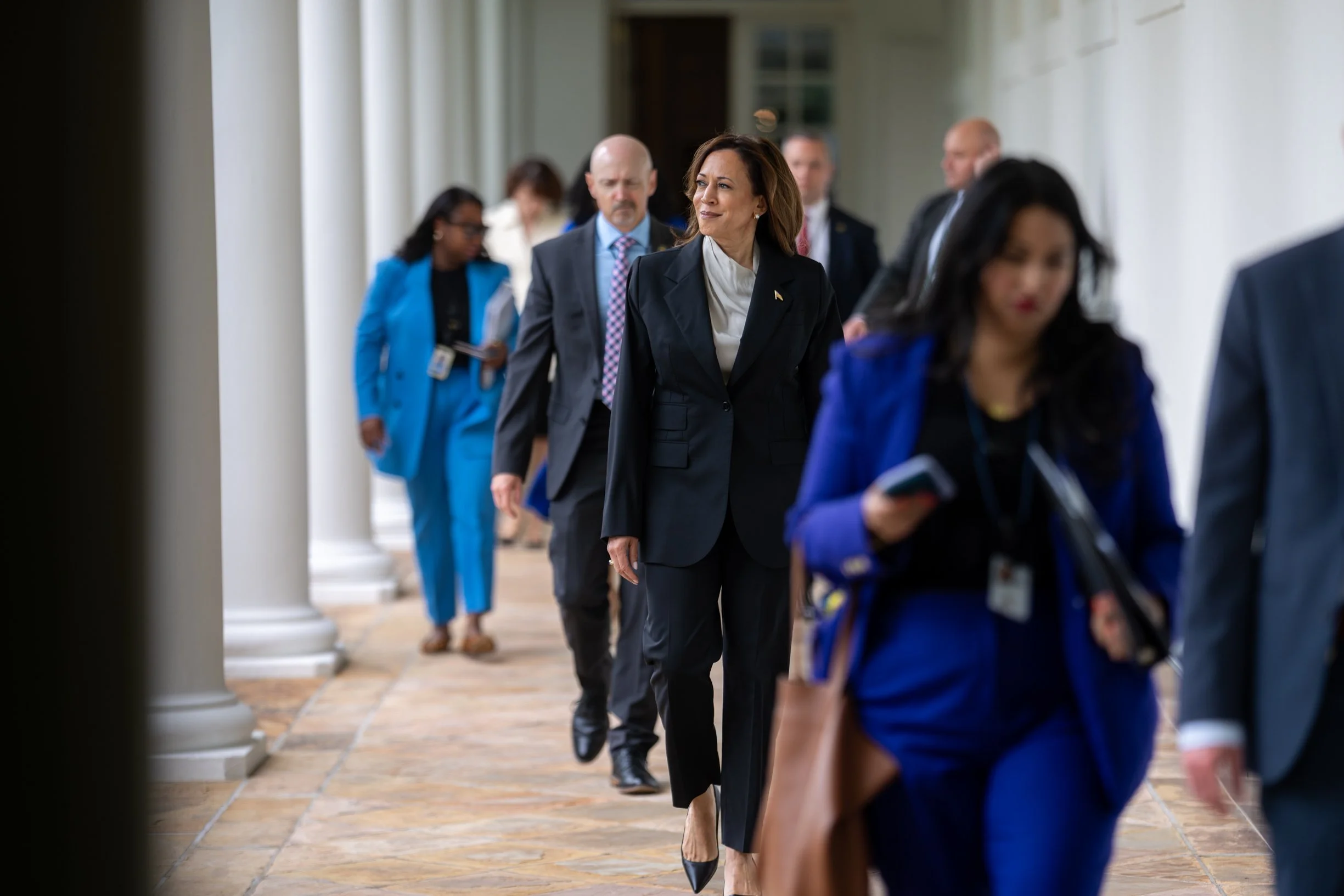Kamala Harris Loses 2024 Presidential Bid: What’s Next for America’s First Female Vice President?
Vice President Kamala Harris walks on the West Colonnade before speaking at a White House NCAA Sports Day event on Monday, July 22, 2024 (Official White House Photo by Lawrence Jackson).
Vice President Kamala Harris’s historic attempt at becoming the first female president of the United States came to a finish early Wednesday morning. With this loss, many Americans are left wondering what role she will adopt within the democratic party and how this will shape the future of democratic ideals and strategies. Despite the defeat, Harris’s campaign set new precedents for women and leaders after her and encouraged supporters to turn their efforts towards growth to more local and state levels.
Article by Victoria Newsome, Senior Election Correspondent
WASHINGTON - Kamala Harris’s defeat in the 2024 presidential election marks the end of a hard-fought campaign and a historic run for the highest office. As the first woman and first Black and South Asian American to serve as vice president, Harris entered the presidential race with hopes of continuing the Biden administration’s work, building on policies that emphasized equity, economic reform, and climate justice. Despite her wide-ranging appeal and coalition of diverse supporters, Harris ultimately fell short, facing significant opposition from an electorate concerned with economic challenges, rising crime, and immigration issues.
Harris’s loss poses a significant moment for the Democratic Party, prompting a potential period of introspection and reevaluation. Many party leaders and strategists believe the loss may reflect the limitations of the current Democratic platform, particularly among moderate and swing-state voters. Harris campaigned vigorously on progressive issues, such as climate change and healthcare reform, which gained traction among younger voters and urban populations but struggled to appeal to voters in rural and suburban areas who prioritized issues like job security, border control, and crime reduction.
Now, Harris faces a choice in her post-campaign life. Some analysts predict she may pivot toward a role as a key advocate for the issues she championed, potentially working within the Democratic Party or other organizations to continue pushing for social reform. Others believe she could take a more active leadership role within the party, steering its policies and strategies in the run-up to future elections. Whatever her choice, Harris remains a powerful figure within the Democratic Party and a symbol of diversity in U.S. politics, likely retaining a prominent place in public life.
The loss may also shift Democratic strategy. Some party insiders suggest the election result indicates a need to recalibrate their message to appeal to a broader base, potentially by focusing on policies that address economic growth, public safety, and border security. This introspection may lead to new voices within the party and possibly signal a return to moderate policies.
Harris’s supporters, while disappointed, are likely to continue advocating for the issues central to her platform, including climate action, racial equity, and economic justice. The loss may even energize grassroots efforts to push these issues forward at state and local levels. Harris herself may channel her influence toward supporting these efforts, helping to maintain momentum even outside the White House.
Despite the defeat, Harris’s legacy as the first woman and first Black and South Asian vice president will endure. Her campaign broke barriers and inspired many, and her supporters hope her story will continue to encourage others to push for representation and progress in American politics.
Assistant chief White House producer Grace Sawyer contributed reporting to this article.
